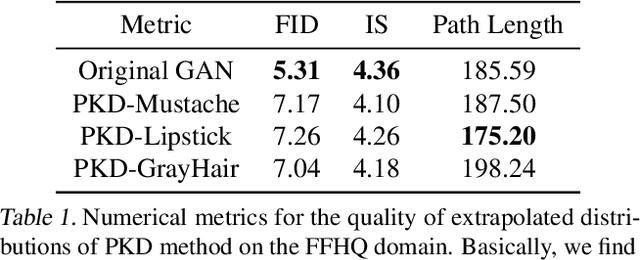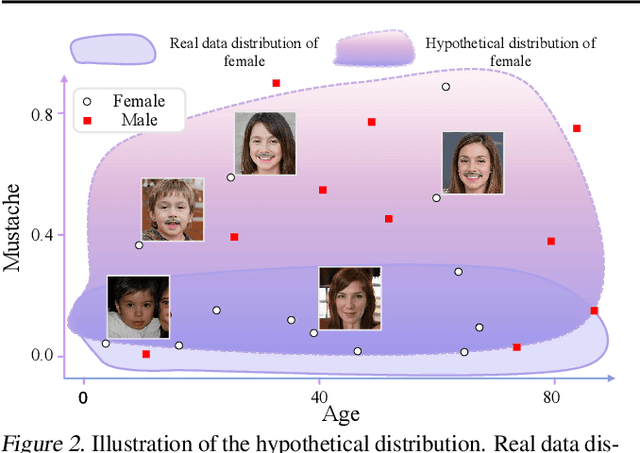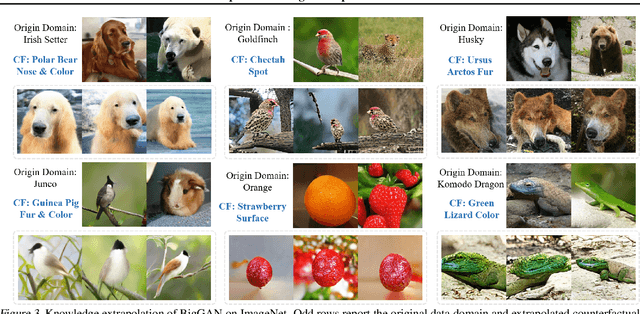Principled Knowledge Extrapolation with GANs
Paper and Code
May 21, 2022



Human can extrapolate well, generalize daily knowledge into unseen scenarios, raise and answer counterfactual questions. To imitate this ability via generative models, previous works have extensively studied explicitly encoding Structural Causal Models (SCMs) into architectures of generator networks. This methodology, however, limits the flexibility of the generator as they must be carefully crafted to follow the causal graph, and demands a ground truth SCM with strong ignorability assumption as prior, which is a nontrivial assumption in many real scenarios. Thus, many current causal GAN methods fail to generate high fidelity counterfactual results as they cannot easily leverage state-of-the-art generative models. In this paper, we propose to study counterfactual synthesis from a new perspective of knowledge extrapolation, where a given knowledge dimension of the data distribution is extrapolated, but the remaining knowledge is kept indistinguishable from the original distribution. We show that an adversarial game with a closed-form discriminator can be used to address the knowledge extrapolation problem, and a novel principal knowledge descent method can efficiently estimate the extrapolated distribution through the adversarial game. Our method enjoys both elegant theoretical guarantees and superior performance in many scenarios.
 Add to Chrome
Add to Chrome Add to Firefox
Add to Firefox Add to Edge
Add to Edge